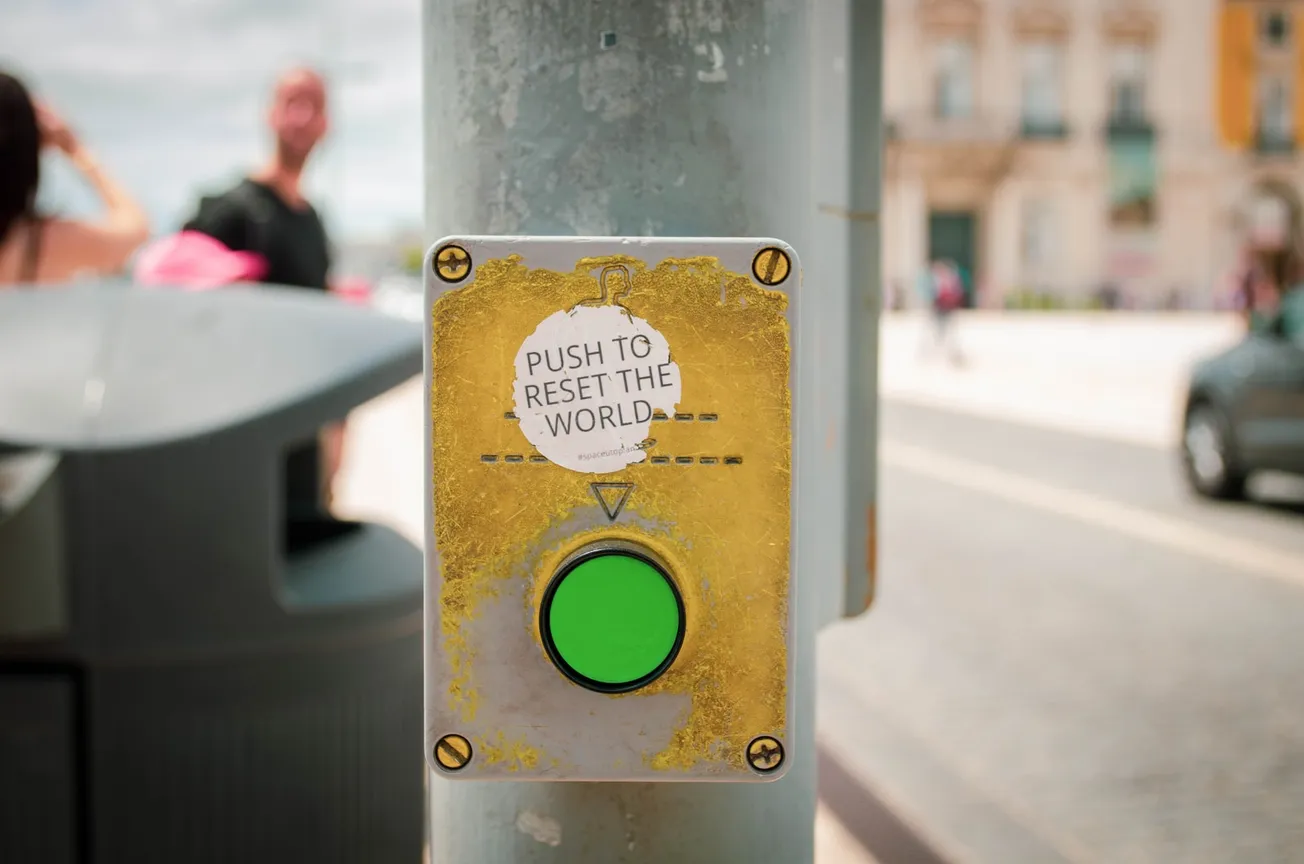Table of Contents
Olivia Pierson
oliviapierson.org

Our government likes to rule under cover of darkness while people are utterly distracted and have little knowledge of bills going through parliament. They’re never shouted from the rooftops for a reason.
I share my submissions sometimes in order for others to notice these issues and encourage them to make their own submissions. We have these democratic processes and we must use them while we still can.
At the very least, contact your local MP and let them know how you feel about this bill and be prepared to listen to a lot of stammering around.
Their version:
Digital Identity Services Trust Framework Bill
The closing date for submissions is 11.59pm on Thursday, 02 December 2021
“The bill seeks to create a secure and trusted environment for verifying a person’s identity online, by establishing common rules and a regulatory authority.
The policy objectives of the bill are to:
- help drive consistency, trust, and efficiency in the provision of digital identity services
- support the development of interoperable digital identity services
- provide people with more control over their personal information and how it is used, and
- enable the user-authorised sharing of personal and organisational information digitally to access public and private sector services.
The bill would affect digital identity service providers, and organisations which use digital identity services (such as government agencies, banks and utility providers), as well as individuals whose personal information is shared through digital identity services. The committee is looking forward to hearing from the public about these proposed changes to the digital landscape.”
My submission to the Committee 3/11/2021:
Despite the many euphemisms, such as “help,” “trust,” & “efficiency,” this bill is clearly designed to create a legal framework and a new governmental bureaucratic authority around the sharing of private, personal digital information between government services and private businesses (banking, utilities and beyond) deemed to be “TF accredited providers.”
In short, this is how NZ is to be introduced to its dystopian digital social-credit system through big-tech, with our new vaccination status and certificates as part of that centralised data collection.
(Right at this moment – and at the guidance of the World Economic Forum and United Nations 2030 Agenda for Sustainable Development – the government of Australia also is seeking to implement their similarly titled Trusted Digital Identity Framework.)
The NZ Bill states:
Meaning of digital identity service
(1) In this Act, digital identity service means a service or product that, either alone or together with 1 or more other digital identity services, enables a user to share personal or organisational information in digital form in a transaction with a relying party.
(2) Examples of digital identity services are services or products that–
(a) check the accuracy of personal or organisational information:
(b) check the connection of personal or organisational information to a particular individual or organisation:
(c) provide secure sharing of personal or organisational information between trust framework participants.
If anybody doubts that the private, medical data of citizens would be shared amongst TF participants (such as vaccination status and accompanying digital certificates) with police, banks, utility providers, your employer, social media administrators etc, consider that already New Zealand citizens who have not complied with Covid-vaccination mandates are being locked out of society as punishment, and actual ongoing mass lockdowns, abuses of our civil liberties and livelihood-ending business closures are a tangible part of our current reality.
Imagine what else a government could potentially lock citizens out of in this new tightly controlled digital economy, and for what reason?
On the health.govt website Covid digital vaccination certificates are becoming available at the end of this month.
My Covid Record:
Is where you can see the date and dose for the COVID-19 vaccinations you’ve already had. The information comes from the data stored in the national COVID-19 Immunisation Register (CIR).
At this stage, vaccination records will only show up if the doses were administered in New Zealand. The name that appears on your record is the name associated with your NHI. If the information associated with your NHI is incorrect, contact your GP or usual health care provider to update it.
These records are for personal reference and can’t be used as proof of vaccination for overseas travel. Digital vaccination certificates for travel will be available at the end of November.
And so it begins.
As RNZ reported on October 26th, 2021, Vaccination to be mandated for workplaces requiring certificates for entry:
“Employers will be required to keep records about workers’ vaccination status. [Michael] Wood said MBIE would work with the Office of the Privacy Commissioner to provide practical guidance on how to ensure workers’ records were handled appropriately.”
If anyone’s personal medical information/record is held or viewable by employers, or would-be employers, it is not private and the Privacy Commission is an abject failure already.
Consider that at this present time in NZ our society has been turned on its head and the seeds of a destructive division have been directly sown by our own government – a real medical apartheid no less – our House of Representatives have no business trying to push through new legislation enabling this country to become a cashless society and taking something as monumentally important as the purchase of all our goods and services online through a centralised authority.
Our Bill of Rights has been made redundant.
Before we see any new laws being passed in our parliament under cover of “the Covid crisis,” all our representatives should be loudly reclaiming the individual human rights contained within our Bill of Rights Act.
This is what we require of you.
My recommendations to the Committee:
Our Governor-General, Dame Cindy Kiro, in keeping with her role as the Queen’s Representative in NZ, has a duty outlined in our Bill of Rights to make sure that all new legislation is consistent with those specific rights before being given the royal assent.
Over the last 18 months we have all borne witness to our Bill of Rights being dramatically overridden in a time of a so-called health emergency; our freedom of movement, our freedom of association, our liberty of the person, our right to peacefully assemble, our freedom of speech etc, were ditched without the bat of a Prime-Ministerial eyelash (and barely a squeak of opposition).
At such a time as this, government has absolutely no business enacting far-reaching new legislation over our economy.
Trust in government is at a low point and many NZ citizens are reeling for a multitude of reasons, not the least being an overt disgust at government-initiated discrimination of non-vaxxed citizens, i.e, their fellow countrymen and women, colleagues, sisters, brothers, children, parents, friends, and extended family members who have opted to assert their Right to “refuse to undergo any medical treatment” and their Right to “not be subjected to medical or scientific experimentation without consent.”
Regarding the Digital Identity Services Trust Framework legislation, on the government website about its Principles, it states, “People’s participation in the digital identity system is voluntary, with the right to opt out without penalty.”
Remember what we were told about the experimental Covid-vaccinations by our Prime-Minister?
That there would be no forced vaccinations and no penalties if citizens opted out.
That was a lie. We have seen nothing but outright coercion via lockdowns, threats, job-losses and millions of Kiwis feeling pressured into it on the basis that they would be excluded from work, from free society: travel, social events and venues (funerals, weddings, birthday parties, the passing of a loved one, babies born). That is NOT penalty-free living. It is simply despicable to treat free citizens in a democracy this way.
As citizens in this moment of history, we are all out of trust in the claims our government makes, so prudence would dictate that in these murky waters, you as representatives do not enact further, binding legislation upon our lives, livelihoods, privacy and economic system. We need to see you make a bold, public and unequivocal recommitment to our Bill of Rights Act, which you all seem to have shelved.
What also stands out about this legislation is that most of you as representatives do not understand it, while others of you understand its authoritative setting so well that you clearly see its potential for even more restrictions on free citizens and even an opportunity to take our voting online (God forbid!). Perhaps because of these two observations of mine, I detect some measure of anxiety in your statements during the first reading, yet you were all swift to give it your rather over-eager, nervous acquiescence.
Hon Stuart Smith, National, Kaikoura:
“I don’t have a lot more to say on this. I’ve had my good turn on it. I congratulate Dr Clark on bringing this bill to Parliament. I think it is something that’s timely. It came out of, of course, the iterative process, right back to the Electronic Identity Verification Act in 2012. We need it, most certainly,but we also want it to work and not impinge on innovation from the private sectorwhere we know all the best innovations do in fact come from.So with that, I commend the bill to the House.”
Glen Bennett , Labour, New Plymouth:
“We are now having to ensure that this piece of legislation, which is around our digital footprint and our identity and the framework that it brings, is fit for standards in 2021 and beyond… It’s important work, and I look forward as a member of the select committee to hearing submissions from the public, and I commend this bill to the House.”
Simon Bridges, National, Tauranga:
“Fundamentally if the framework is done well it will enhance the trust and confidence New Zealanders have in that sector and the ability to keep on doing, and, in fact, grow our creativity and innovation. If it’s not there, well, as I say, at one extreme people will keep their money under the bed.We support the intent. There’s detail in this bill to be worked through. But I’m sure it will be, and it will help. Albeit there’s many other things, like I say, like skilled workers, tax settings, and the like to ensure that the third prong, in my view, of New Zealand’s economy, the digital and creative sector, goes from strength to strength to strength, and helps pay for our hospitals, our education systems, and so on to make this one of the greatest little countries in the world to live in.”
Dr. James McDowall, ACT:
“I’m not entirely certain that this will deliver better services at the other end. Proof will be in the pudding. I’m not sure, based on the bill, if Application Programming Interfaces are going to be used to share data between private and public organisations. And I wonder, you know, in theory, this could lead to a situation where a Government agency could, the Police, for instance, issue a driver’s licence on your phone and that would be a trustworthy piece of ID. So is that the direction we’re going in? That would be quite interesting for that to happen… So we’ve got some reservations and some concerns, but I think the direction of travel is right and we’re happy to commend this to the House.”
Todd Muller, National, Bay of Plenty:
“Here we are, eight years later, arguing that, actually, it is very deficient that, for a whole raft of reasons, mainly the impact of the industrial revolution, technology and artificial intelligence, and all the new ways of thinking and operating and engaging through the cloud,has meant that that framework is now redundant.My caution is that here we are in 2021, saying that we have now established a new framework that should give us the confidence that we will be able to provide secure platforms for New Zealanders to transact with each other and with the Government, and that their information—their critical personal and commercial information—will be secure.”
Terisa Ngobi, Labour, Otaki:
“COVID-19 is a really good example of why this Digital Identity Services Trust Framework Bill is timely and critical… This bill and framework gives New Zealanders that online trust, but also it modernises the approach to digital identity and it’ll provide a resilience to unexpected events like the situation we find ourselves in at the moment with COVID. And we still need to access those essential services online, so this framework provides that trust for us. Again, it’s really timely and I commend this bill to the House.”
Ingrid Leary, Labour, Taiere:
“It’s really empowering bringing many voices to the table, and it’s exciting in terms of the new virtual realities that are available to people. But it’s almost wholly unregulated, and we’ve seen one of the biggest challenges for our country has been the misinformation that has led to vaccine hesitancy. We’ve seen misinformation in the recent US, or not so recent US elections, and of course there’s online fraud and privacy breaches. At the heart of these issues is digital identity. It’s absolutely crucial that we are able to keep our digital identity safe so that we’re not exposed to fiscal issues around banking, that we can move freely and restrict movement where necessary, and just enjoy our freedoms in the non-digital world… So this is a very timely and important initiative, and I commend the bill to the House.”
Nicola Grigg, National, Selwyn:
“I think someone else made mention earlier of the prospect of digital driver licences. I mean, I don’t know about everyone else in this House, but the only reason I carry a physical wallet nowadays is for my driver’s licence. Everything else is on my phone: my EFTPOS cards, my ability to pay online, my Flybys—that’s very essential; I use that regularly as well. But the only thing that’s not on my phone is my driver’s licence, so I do wonder about the potential for that, and that would be a classic example of the essential need to be able to protect essential information like that…
So a framework that will ensure consistency in the basic principles of privacy and data protection is welcome by us on this side of the House, and indeed all sides of the House, and in a very quickly changing and evolving digital world, it is going to be essential to incorporate a framework that will engender trust in the public. So we are pleased to commend this bill to the House.”
Barbara Edmonds, Labour, Mana:
“But going back to the main key point of my speech is this is about trust. It is a fundamental new regime. It does require good scrutiny at the select committee. I’m really keen to understand how the international interoperability works with Australia and the UK and whether other international country partners are going to it, in order to protect our Kiwis’ identification or information. I’d be really interested to see how the enforcement powers sit; again, submitters being able to see whether they are too hard or too soft; and, again, has this bill met the threshold where members of that board should have secrecy and immunity from releasing any of that information? So on those points, I’d like to commend this bill to the House.”
Eugenie Sage, Greens:
“We note too that digital identity is potentially really important for our voting system. There has been provision made for online voting at local authority level for trials, but I don’t think any local authority took that up because of concerns about hacking and insecurity of information. So the work in this space may assist with that. With everything moving online—particularly for people—now, it seems a bit incongruous to go to a polling station or to fill out something that is on paper and send that back.
So this whole issue of identity verification should be treated as a public good because it does facilitate the inclusion of individuals in commerce, in society, and in interacting with Government. Therefore, the funding for the development of the framework should come through general taxation, rather than through some sort of a user charge, and we hope that there’s been a commitment to do that. The Green Party will be supporting this bill to select committee. Kia ora.”
If any of you are still able to read a room, let alone a country, you’ll notice that our trust in government to be able to provide new, beneficial, liberty-respecting legislation in keeping with our Bill of Rights is now in the toilet and I recommend that you scrap this massive authoritarian, financial, digital abomination.
That government is best which governs least.
Please share this article so that others can discover The BFD.









